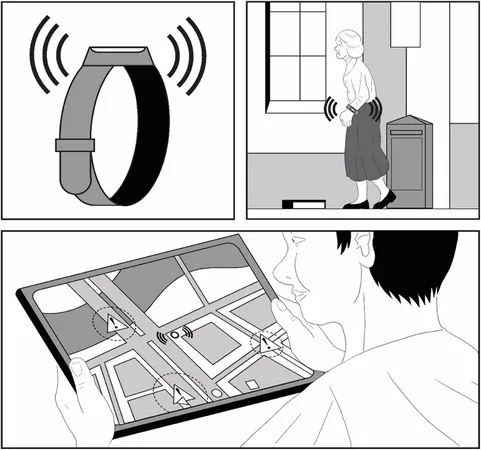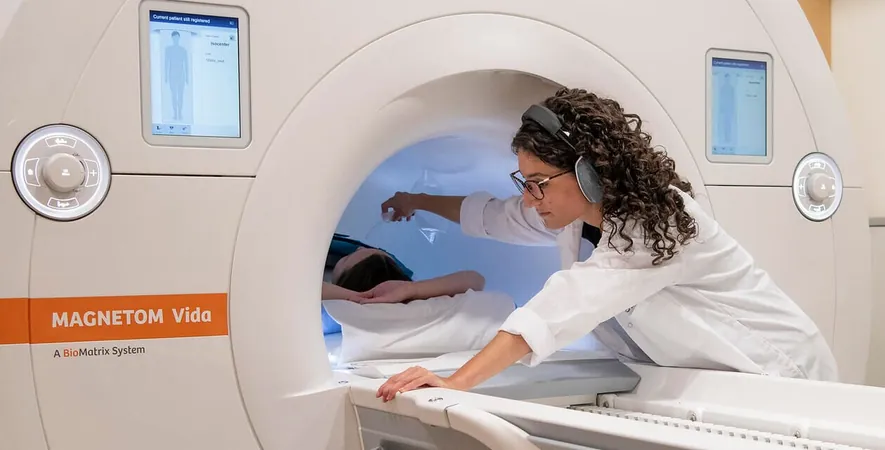
Breakthrough Study Reveals Ozone Therapy as a Game-Changer in Treating Sepsis!
2024-12-29
Author: Amelia
Introduction
Sepsis, a life-threatening condition triggered by infection, is known to lead to severe complications such as acute lung injury (ALI) and acute respiratory distress syndrome (ARDS). A groundbreaking new study from Nanjing Medical University in China shines a light on medical ozone therapy, revealing its potential as a revolutionary treatment for sepsis-induced ALI. This innovative approach could significantly enhance both survival rates and lung function in patients, offering fresh hope where traditional treatments have failed.
The Role of Neutrophil Extracellular Traps
The study highlights the role of neutrophil extracellular traps (NETs), which are designed to trap harmful pathogens. Yet, in the context of sepsis, they can also incite debilitating inflammation that worsens lung injury. This underscores the complexity of managing sepsis-induced ALI, where inflammation, immune response, and blood clotting interact in a dangerous feedback loop.
Study Findings
Published in the Journal of Biomedical Research, the findings demonstrate how medical ozone therapy effectively targets and clears these harmful NETs. In preclinical experiments involving mice afflicted with sepsis-induced ALI, the treatment showed remarkable efficacy, resulting in improved survival rates and better lung performance.
Expert Insight
Dr. Wen-Tao Liu, the study's lead researcher, articulated the significance of this discovery, stating, “Our research demonstrates that medical ozone therapy could dramatically improve the management of sepsis-induced ALI. This represents a promising new approach to critical care that could lead to better outcomes for patients suffering from sepsis.”
Potential Implications
The implications of these findings could be monumental. Should future research confirm these outcomes in human trials, ozone therapy might emerge as a vital intervention for sepsis-induced lung injury—a condition that has historically left healthcare providers with limited therapeutic options.
Conclusion
Ozone therapy's capacity to enhance survival chances and improve lung function may redefine how we approach sepsis treatment, breathing new life into the management of this perilous condition. As further research progresses, medical ozone therapy could become a cornerstone treatment, reshaping the narrative surrounding sepsis and offering renewed hope to countless patients grappling with such a grim prognosis. Stay tuned for more updates on this exciting development in critical care medicine!









 Brasil (PT)
Brasil (PT)
 Canada (EN)
Canada (EN)
 Chile (ES)
Chile (ES)
 Česko (CS)
Česko (CS)
 대한민국 (KO)
대한민국 (KO)
 España (ES)
España (ES)
 France (FR)
France (FR)
 Hong Kong (EN)
Hong Kong (EN)
 Italia (IT)
Italia (IT)
 日本 (JA)
日本 (JA)
 Magyarország (HU)
Magyarország (HU)
 Norge (NO)
Norge (NO)
 Polska (PL)
Polska (PL)
 Schweiz (DE)
Schweiz (DE)
 Singapore (EN)
Singapore (EN)
 Sverige (SV)
Sverige (SV)
 Suomi (FI)
Suomi (FI)
 Türkiye (TR)
Türkiye (TR)
 الإمارات العربية المتحدة (AR)
الإمارات العربية المتحدة (AR)